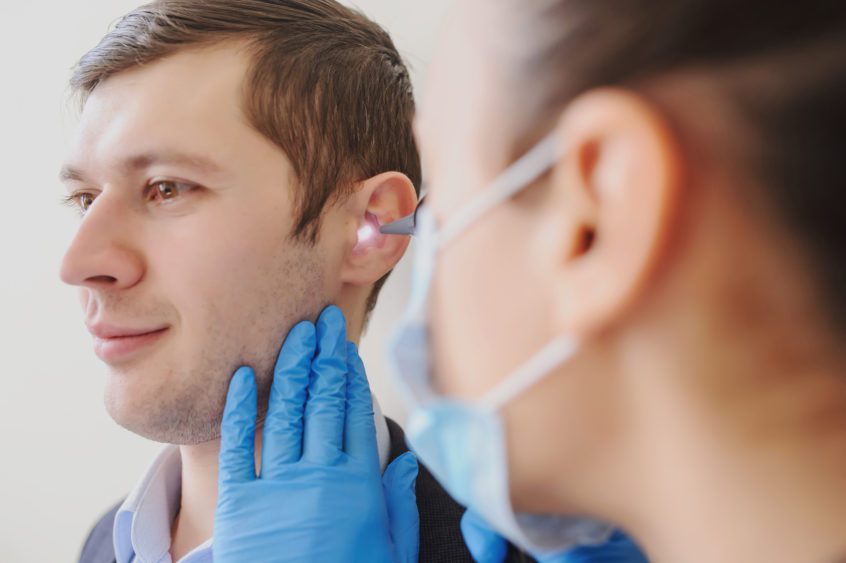Because COVID-19 is so new and research regarding its impact on the human body is limited, it’s difficult to know what the long-lasting effects with be on those who contract the virus. In fact, it’s likely it could be years before we know how this virus affects the body long term.
Recently, however, studies published in highly respected medical journals, such as the American Journal of Otolaryngology, have documented evidence that even those with no symptoms may experience damage to the outer ear hair cells, which could impact hearing.
In this particular study, the researchers compared the amplitude of transient evoked otoacoustic emissions (TEOAEs) and thresholds of pure-tone audiometry between asymptomatic COVID-19 PCR-positive cases and normal non-infected subjects.
Twenty cases who were confirmed positive for COVID-19 and had none of the known symptoms for this viral infection formed the test group. Their age ranged between 20 and 50 years to avoid any age-related hearing loss. Patients who had definite symptoms of COVID-19 infection, as well as those who had a history of hearing loss or a history of any known cause of hearing loss were excluded from the study. Transient evoked otoacoustic emissions were measured for all participants.
The results in the high-frequency pure-tone thresholds, as well as the TEOAE amplitudes, were significantly worse in the test group.
This left these authors to conclude that the COVID-19 infection could have a negative effect on cochlear hair cell functions, despite the fact that these patients did not have the classic symptoms of the virus.
Other studies and reports are stating similar findings, leading researchers to conclude that further study of the impact of COVID-19 on patients’ hearing who have contracted it is needed, even if they had no symptoms.
In addition, a letter published in the International Journal of Immunopathology and Pharmacology called for medical professionals to be aware of ototoxicity, or the potential risk to hearing, of some of the drugs being prescribed to treat COVID-19.
In particular, the drugs chloroquine and hydroxychloroquine have been widely promoted and used during the pandemic; however, in the past, data in the literature have suggested that in many treated cases side effects such as sensorineural hearing loss, tinnitus, and/or persistent imbalance were common. Unfortunately, these side effects may not be reversible.
The antibiotic azithromycin also has been prescribed for COVID-19, often in combination with hydroxychloroquine. It has also been reported to cause both reversible and irreversible sensorineural hearing loss and tinnitus.
Remdesivir and favipiravir are antiviral medications that have been reported as possible useful treatments against COVID-19. However, ototoxicity has been reported among the possible side effects of them as well. Other medications prescribed for COVID-19 also have had reported side effects on hearing.
In case of ototoxicity, the severity of hearing loss, tinnitus, or imbalance are usually influenced by the dose, the duration of the therapy, and other factors related to the patient. In most cases, the ototoxic effects develop after use of a medication over weeks or months. There needs to be further investigation of these possible side effects.
However, patients need to be aware that if you’ve tested positive for COVID-19, but had no symptoms, yet have noticed a change in your hearing, it is possible that it could have damaged your hearing.
Likewise, if you’ve had COVID-19 and were treated with any of the medications mentioned here, you may want to follow up with an audiologist to have your hearing evaluated and monitored long term.
Again, because this virus is so new, it may be years before the long-term complications are known. Schedule an appointment with a doctoral-level audiologist.



